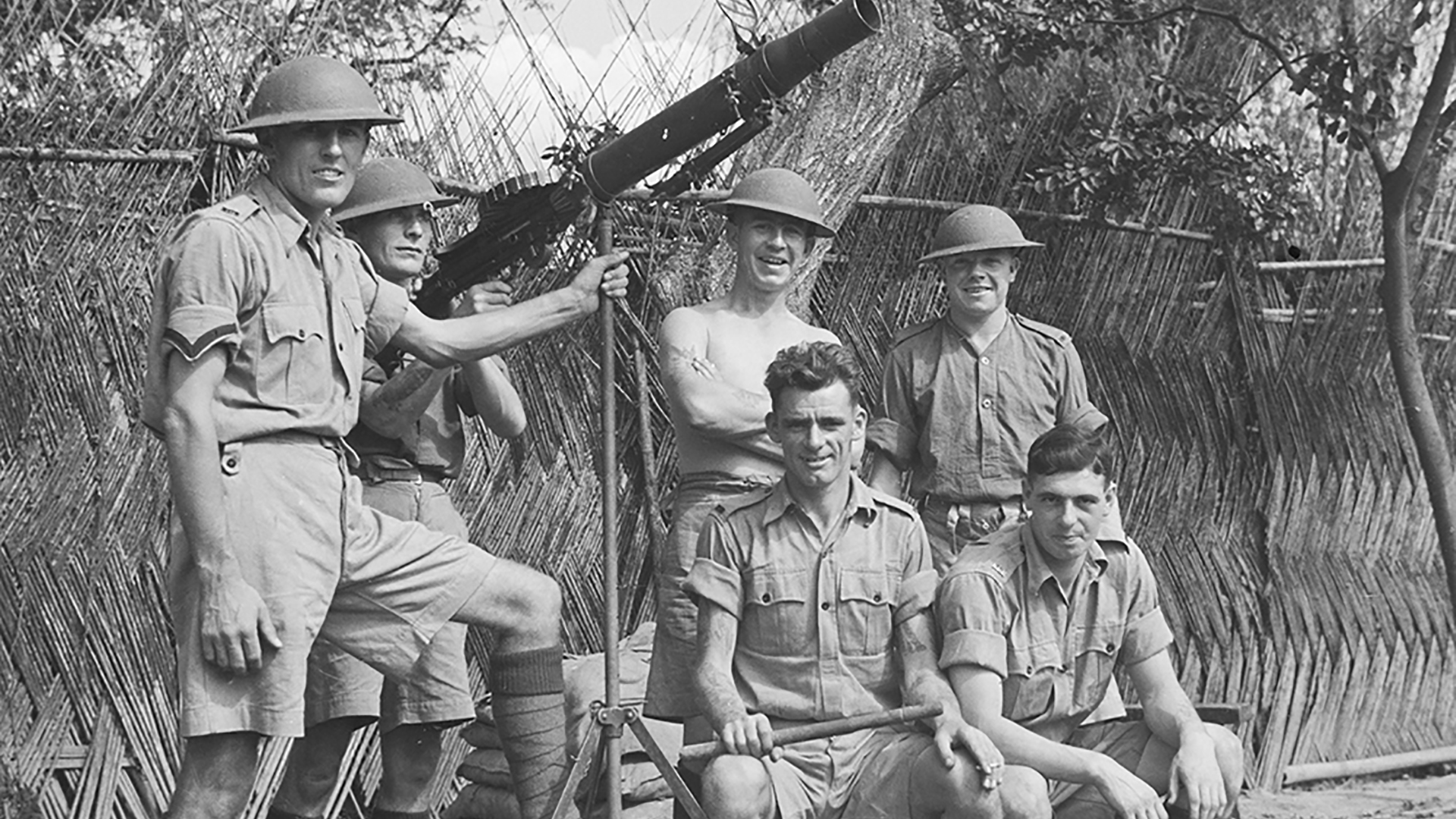Rifleman James Mellon served in 1st Battalion Royal Ulster Rifles before the Second World War. For many years, his story and final resting place in Shanghai, China were unknown. He was the 3rd son of Mr. and Mrs. Michael Mellon of 65 Irish Street, Derry/Londonderry.
James was due to leave the British Army in January 1938. He enlisted aged 18 years old and by the outbreak of the Sino-Japanese conflict, had already served in Jerusalem, Alexandria, and Hong Kong.
In 1937, Mellon and the Royal Ulster Rifles were on the outskirts of the International Settlement of Shanghai, China. Their role was to prevent illegal entry into and to keep fighting out of the international safe zone. The British soldiers there went above and beyond their call of duty. As desperate Chinese civilians struggled to escape the violence, the men of the Rifles would often help. This meant venturing into no man’s land to carry out rescues.

University of Bristol - Historical Photographs of China Ro-n1020. (Part of the Malcolm Rosholt Collection). Members of the Royal Ulster Rifles based in Shanghai, China. Rifleman James Mellon mans the Lewis Gun, Rifleman William Christopher Howard carries a stick, and Rifleman Robert Delaney is shirtless. All 3 died as a result of a bombing on 29th October 1937. Copyright 2012 Mei-Fei Elrick and Tess Johnston.
James Mellon and William Christopher Howard died in a bombing attack on 29th October 1937. A shell exploded at their post at the south end of Jessfield Road Bridge. This area is now in Zhongshan Park. Rifleman Robert Delaney, injured in the blast died on 31st October 1937. Joseph O’Toole died on the same day as Mellon in a separate incident as a shell hit the Honeyland Bar where some off-duty Rifles were having a drink. Rifleman Patrick McGowan had died a few days earlier as a Japanese plane strafed the safe zone.
Mrs. Mellon received the news when a representative of the Belfast Telegraph newspaper visited her home on Friday 29th October 1937 as she prepared the evening meal. Neighbours gathered in the Mellon family kitchen to offer support to James’ parents.
Oh my poor boy. To think that he has been killed in that cruel war. Oh, this is terrible.
James Mellon’s funeral took place on 1st November 1937 in Shanghai, China with full military honours. Both Chinese and international mourners attended. His grave lay next to those of the four other men from the Royal Ulster Rifles who died in separate attacks. He was 25 years old.
In the years following the Second World War, these resting places became lost. During the cultural revolution, the Chinese under Mao Tse-Tung destroyed many headstones of foreign troops. In later years, they replaced many. However, names of fallen soldiers came from shattered fragments and often led to mistakes by Chinese stonemasons.
Reports from China suggested the graves of the men moved several times but were never destroyed as some reports indicated. Another letter from the Chinese government suggested a multi-storey carpark now occupied the burial site. Several cemetery names were put forward such as Bubbling Well Cemetery, which closed in 1954. Men buried there were to be removed to Dachang Cemetery. This cemetery was built over by factories.
Sara Moran from Derry, Co. Londonderry made it her mission to track down her uncle’s Patrick McGowan’s grave and find out his story. In 2013, she wrote to British Prime Minister David Cameron and worked with consular officials in Shanghai. Help came from Matthew Forbes, Deputy Consul General in Shanghai and Mark Logan, Head of Communications. British Shanghai-based historian Mark Felton provided invaluable assistance. The graves of Patrick McGowan and James Mellon were in Song Qingling Cemetery within 10 metres of each other.
After the finding of the graves of the Royal Ulster Rifles’ men, a ceremony took place at the burial site at 1500hrs on 11th December 2013. At the time, HMS Daring was in port at Shanghai and members of the crew attended including Rear Admiral Matthew Parr.
